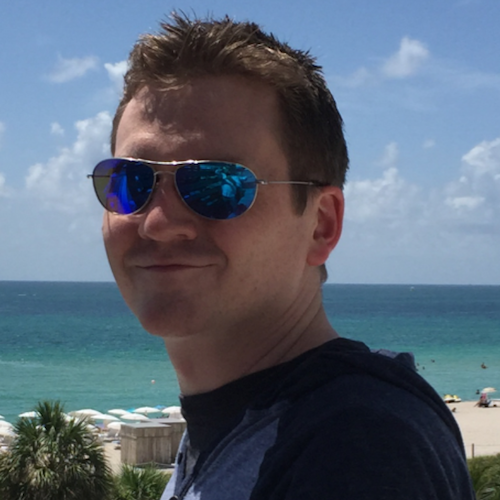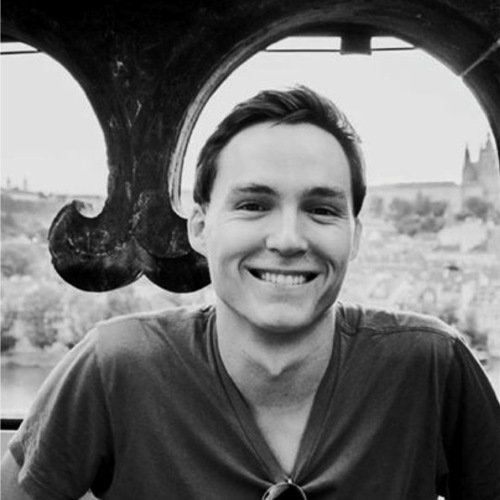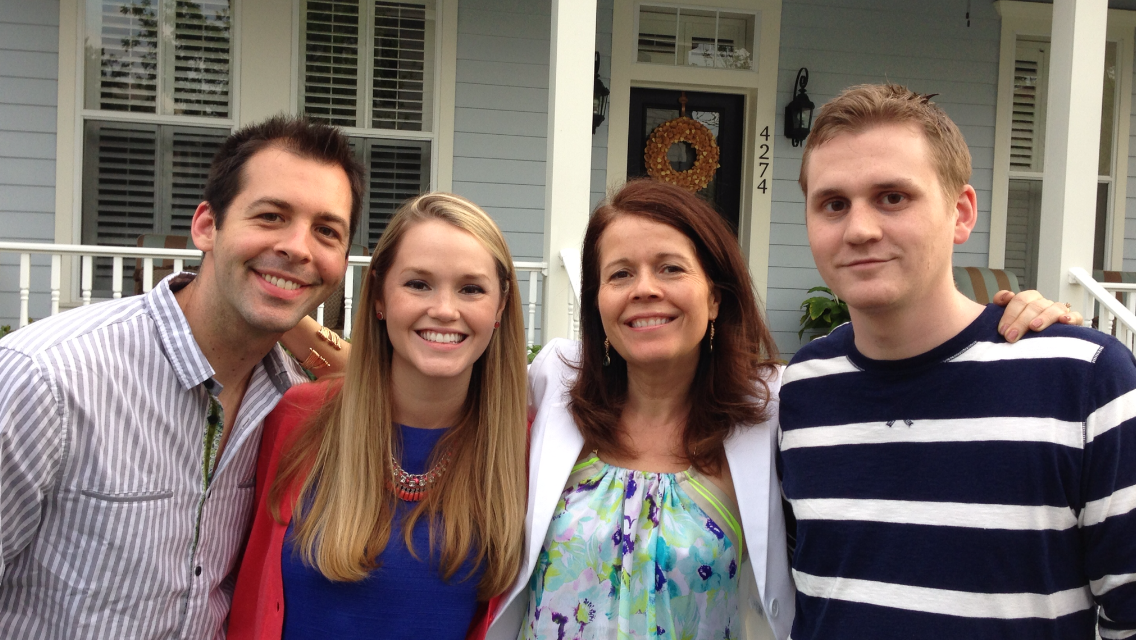
Daniel C. Cooper was passionate about science, specifically advancing treatments for mental health diseases and disorders. He received his Ph.D. in organic chemistry from Brown University in 2012, and his parents say he “was never happier than the time he spent during his studies at Brown.”
When Cooper took his own life at the age of 32, after years of battling obsessive-compulsive disorder and anxiety, his parents, John and Beth Cooper, created the Dr. Daniel C. Cooper Graduate Award Fund within Brown’s brain science institute to fuel mental health-related research.
“Our hope is that we can play a part in developing more and better options for others with similar challenges,” John Cooper said, referring to his son’s struggle with mental health. “We also want to encourage more research in these areas, and believe that by creating a funded pathway for this, we are supporting this work.”
Since the Coopers’ initial $100,000 gift in 2017, five students have received Graduate Awards in Brain Science supported by the Cooper fund. Now, a new $500,000 gift from the Cooper family will endow the Dr. Daniel C. Cooper Graduate Award Fund.
“The graduate years are when most scientists start to define their future research,” said Diane Lipscombe, Reliance Dhirubhai Ambani Director of Brown's Robert J. and Nancy D. Carney Institute for Brain Science. “I remember my big failures, successes and the thrill of discovery when you realize that you are the first person to witness a biological signal or to find a solution to a problem. It is, therefore, incredibly important to be able to recognize our talented graduate students at this informative stage of their careers, and why the Dr. Daniel C. Cooper Graduate Award Fund is so meaningful to the recipients.”
Fueling research into the brain
The Graduate Awards in Brain Science from the Carney Institute recognize graduate students who have made outstanding research progress and demonstrate strong potential for successful lifelong scientific careers. Recipients get stipend and tuition support for a full year.

Joseph Heffner, a Ph.D. candidate in psychology, received a graduate award this year, which was supported by the Dr. Daniel C. Cooper Graduate Award Fund, for a project to understand when and how emotions facilitate or impair social decision-making.
Heffner conducts his research in the laboratory of Oriel FeldmanHall, Manning Assistant Professor of Cognitive, Linguistic, and Psychological Sciences. He is investigating how people use violations of their emotional expectations — such as how they thought they would feel versus how they actually feel — to guide social behaviors.
“We find that different types of emotion violations predict different social decisions, and that a choice to punish or forgive can be decoded in less than a second from an evolving emotional response,” Heffner said.
In collaboration with scientists in the FeldmanHall Lab, Heffner developed a new method to measure real-time fluctuations in emotions as people decide to punish or forgive others. Heffner’s research has shown that individuals at risk for depression display selective impairments in using emotion signals to make social decisions. According to Heffner, understanding how healthy and impaired emotional processing affects choices is critical for future interventions to promote adaptive societal behaviors such as cooperating with others.
In another project conducted during the term of his Carney Institute graduate award, Heffner uses machine learning to reverse engineer the types of emotional experiences people may have experienced when they chose to punish others. Heffner has found that anger, which is popularly thought to drive punishment, is not the most representative emotional state associated with punishment. Negative emotions, including sadness and disappointment, are the more likely emotions to drive punishment, he said.
Heffner emphasized that the graduate award from the Carney Institute was instrumental to his ability to carry out both research projects.
“The Carney Institute graduate award has allowed me to spend more time learning and incorporating computational approaches in my research to test how people make social decisions,” he said, adding that he is currently searching for postdoctoral positions focused on decision-making and affective neuroscience with relevance to clinical populations.
In addition to Heffner, the Dr. Daniel C. Cooper Graduate Award Fund has supported the following graduate students:
-
Harrison Ritz, a Ph.D. candidate in psychology, applied computational models of engineering control theory — such as those used in cruise controls and thermostats — to the cognitive and neural processes involved in goal-driven behavior. Ritz’s long-term goal is to direct a university lab that develops rich processes models for neuro-cognitive control dynamics and validates these models with advanced human neuroimaging techniques.
-
Marc Powell worked in the laboratory of assistant professor David Borton to develop new devices that allow for high-resolution and distributed interrogation of cortical regions with wireless electronics. Powell received a Ph.D. in biomedical engineering from Brown in January, and he is now a postdoctoral associate at the University of Pittsburgh Department of Neurological Surgery.
-
Prannath Moolchand studied how the signals in the subthalamic nucleus change under response to conflict conditions. Moolchand received a Ph.D. in neuroscience from Brown in 2019. He is a postdoctoral scholar at Stanford University.
-
Hyeyoung Shin combined mathematical modeling, advanced electrophysiological and optogenetic methods and highly controlled behavior in mice to better understand sensory perception. Shin received a Ph.D. in neuroscience from Brown in 2019. She is a postdoctoral researcher at the University of California, Berkeley.
Honoring a brilliant mind

John and Beth Cooper are proud to continue supporting the work of graduate students at Brown, who they say are full of potential.
“We love the enthusiasm and creativity of young scientists, which all remind us of our son,” John Cooper said. “Our goal is innovation, sponsorship, cross-departmental research and opening up multiple channels at the same time.”
Daniel Cooper was recognized as a genius by his school system in elementary school, and he was diagnosed with obsessive-compulsive disorder and anxiety in early puberty. His parents say he constantly tinkered with the few drugs available to treat his mental health challenges because he was disappointed with the limited options.
While at Brown, Daniel received the William T. King Prize for superior performance as a teaching assistant in the Department of Chemistry. He also received a NASA space grant for a project on novel DNA bases. His work provided the basis for a paper demonstrating a new system for reducing oxygen via proton coupled electron transfer, leading to DNA damage.
J. William Suggs, a professor emeritus of chemistry at Brown and Daniel’s Ph.D. advisor, described Daniel as an excellent scientist and a good friend.
“I always told my graduate students that I would rather they come looking for me than I come looking for them. Dan took that to heart,” Suggs said. “He would, several times a week, start the day with results he had obtained or talk about plans for the next few days of experiments. He combined curiosity with a drive to complete the project.”
After graduation, Daniel taught A.P. chemistry and computer courses at a high school in Miami until he passed away.
“Dan loved Brown,” Beth Cooper said. “He had great friends, and everybody was really happy at Brown.”
“We love the people, the history, the leadership and the openness of the senior team at Brown to work creatively with us,” John Cooper added. “We would never consider going anywhere else for our sponsorship of these areas of research.”